Reports & Documents
| Document Sort descending | Download | Type |
|---|---|---|
A supplement to The 2011 ESPAD Report
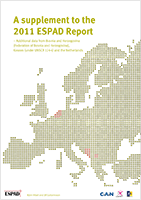
This is a supplement to the ESPAD 2011 (released in May 2012) containing additional data from from Bosnia and Herzegovina (Federation of Bosnia and Herzegovina), Kosovo (under UNSCR 1244) and the Netherlands. A supplement to The 2011 ESPAD Report (released December 17, 2013). 183 pages. (only pdf available) |
Report | |
Alcohol and Drug Use Among European 17-18 Year Old Students
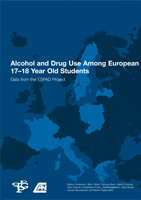
Alcohol and Drug Use Among European 17-18 Year Old Students (released February, 2007). 156 pages. (100 SEK) |
Report | |
| Cooperation agreements | Document | |
| English Student Master Questionnaires | Questionnaire | |
ESPAD 2015 report
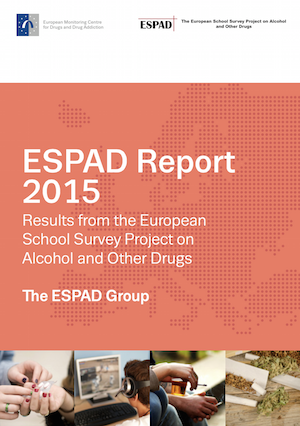
This report presents the results of the sixth data-collection wave of the European School Survey Project on Alcohol and Other Drugs (ESPAD) and marks the 20th anniversary of ESPAD data collection (1995-2015). This report is also available as an online report which also includes additional resources, including tables and graphics. |
Report | |
ESPAD 2015 report — detailled methodology
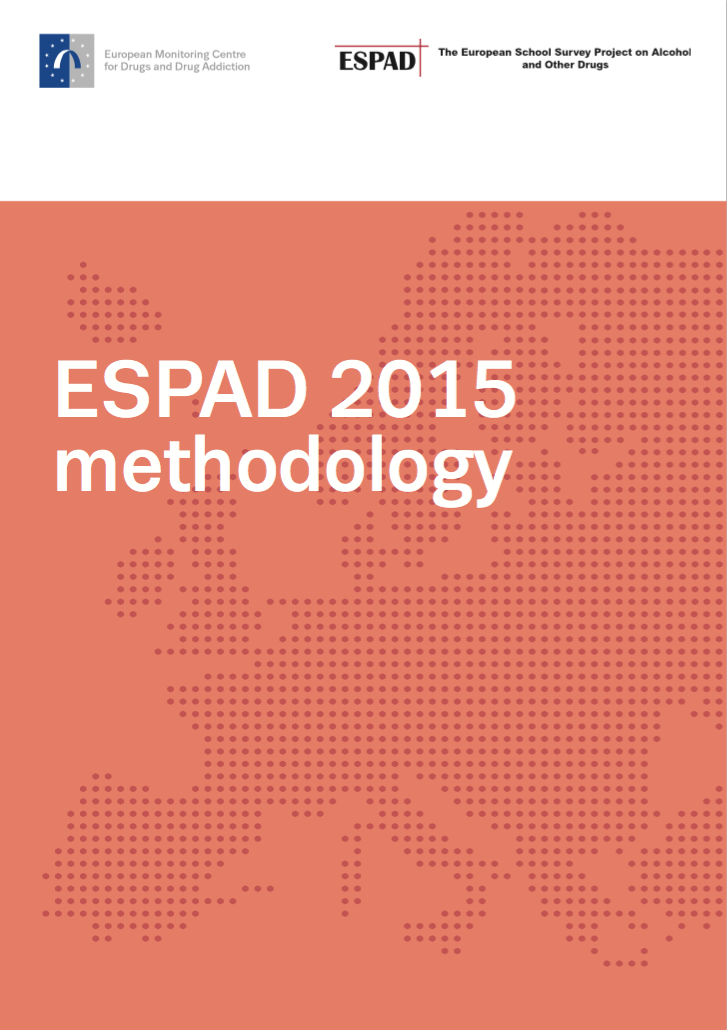
The main purpose of the ESPAD project is to collect comparable data on substance use among students of the same age in as many European countries as possible. The studies are conducted as school surveys among students turning 16 during the year of the data collection, and following a common methodology. A handbook describing methodology and reporting procedures facilitates the collection of comprehensive and comparable data. |
Report | |
ESPAD 2019 Methodology

The ESPAD has been collecting comparable data on risk behaviours and substance use among adolescent students for almost 25 years, in order to monitor trends in and between countries. The study is conducted in each participating country as a school survey for students reaching the age of 16 years during the year of the data collection, and following a common methodology. A handbook describing the methodology and reporting procedures drives the implementation of the study in the participating countries, thus facilitating the collection of comprehensive and comparable data. |
Report | |
ESPAD Report 2019
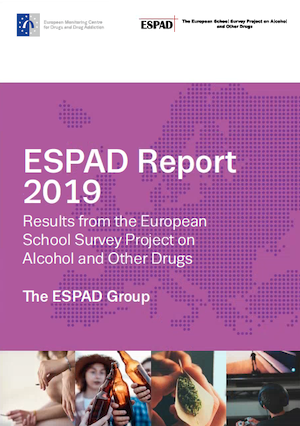
This is the seventh data-collection wave conducted by the ESPAD project since 1995. A total of 99 647 students participated in the latest survey round, responding to an anonymous questionnaire. The ESPAD Report 2019 features information on students’ experience of, and perceptions about, a variety of substances, including: tobacco, alcohol, illicit drugs, inhalants, pharmaceuticals and new psychoactive substances (NPS). Social media use, gaming and gambling are also covered. The report package may be found on the dedicated ESPAD Report 2019 page. |
Report | |
ESPAD Report 2019 — additional tables
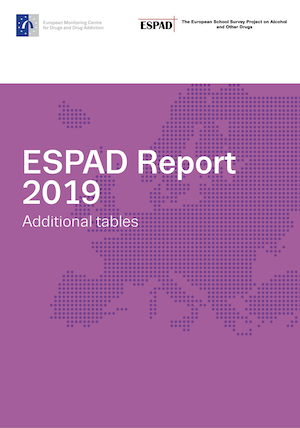
This document presents in PDF format, additonal tables to those presented in the main ESPAD Report 2019. |
Report | |
| Support letters | Document | |
The 1995 ESPAD Report
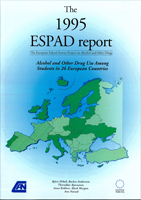
The 1995 ESPAD Report (released September, 1997). 309 pages. (Out of print) |
Report | |
The 1999 ESPAD Report
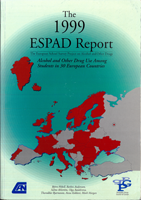
The 1999 ESPAD Report (released December, 2000). 383 pages. (150 SEK) |
Report | |
The 2003 ESPAD Report
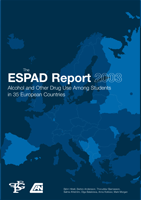
The 2003 ESPAD Report (released November, 2004). 436 pages. (150 SEK) |
Report | |
The 2007 ESPAD Report

The 2007 ESPAD Report (released March 26, 2009). 408 pages. (150 SEK) |
Report | |
The 2011 ESPAD Report

The 2011 ESPAD Report (released May 31, 2012). 390 pages. (500 SEK) An extended summary of The 2011 ESPAD Report has been produced in cooperation with the EMCDDA. |
Report | |
The 2012 ESPAD Impact Survey

After the launch of the 2011 ESPAD report an impact survey was conducted in order to explore the interest and use of the report among researchers, the permanent correspondents of the Pompidou Group and the heads of the Reitox focal points. The 2012 ESPAD Impact Survey (released October, 2013). 40 pages. (only pdf available) |
Report | |
The 2013 ESPAD Validity Study
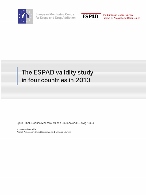
A basic question in most research projects is whether you really measure what you want to measure — in other words, whether the validity is sufficient. This report presents findings from a study regarding the validity of the ESPAD questionnaire performed in four countries during 2013. The ESPAD validity study in four countries in 2013 (released July, 2015). 41 pages. (only pdf available) |
Report |